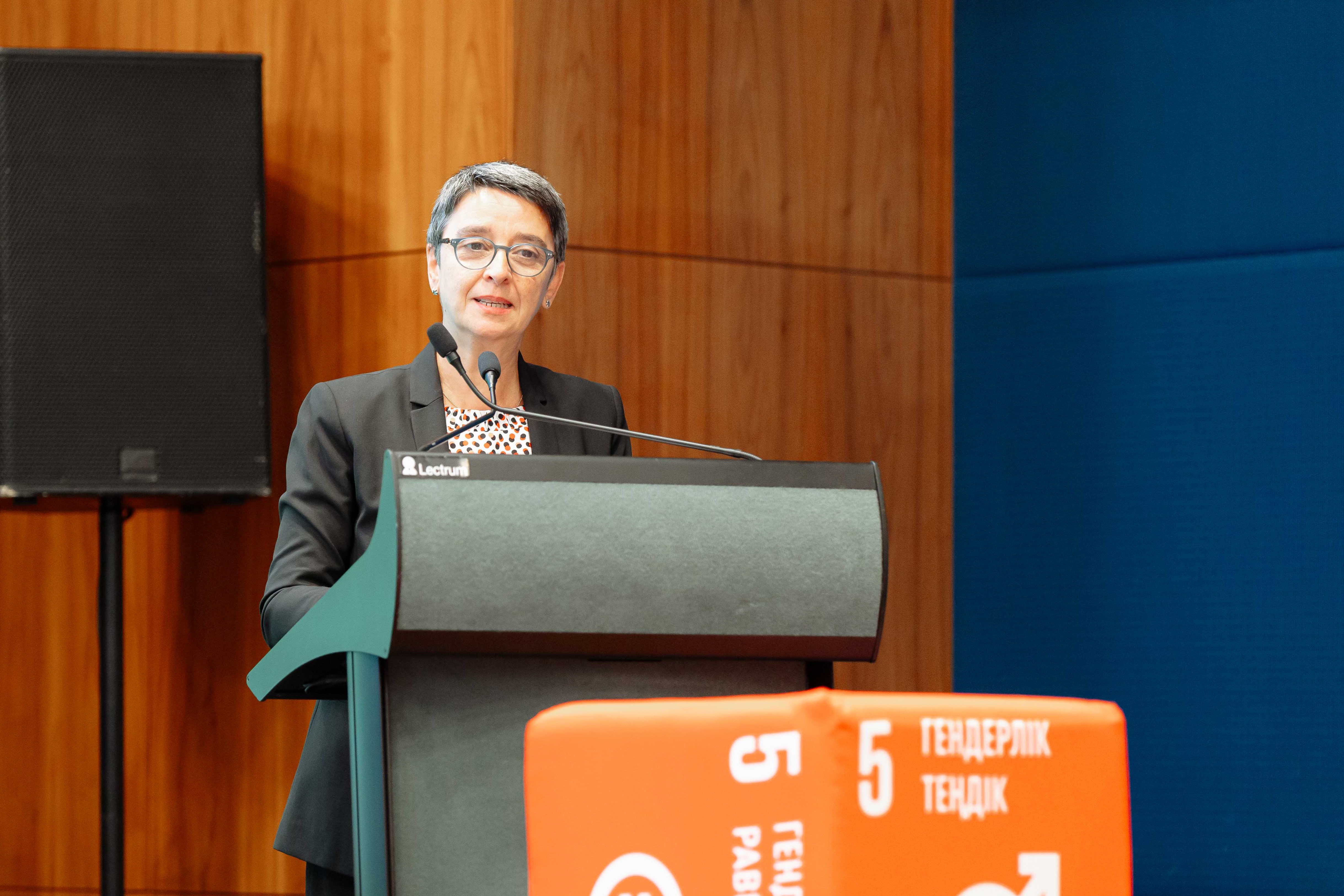UNDP report shows women’s rising role in the Kazakhstan renewable energy sector
October 17, 2023

The United Nations Development Programme (UNDP) in Kazakhstan has published an in-depth analysis of the gender balance in the renewable energy sector (RES) in Kazakhstan.
The report showed that the proportion of women in Kazakhstan's energy sector remains lower than that of men. Specifically, the average representation of women in the coal industry was 22 percent, while in the oil and gas sector it was 18 percent. In contrast, the percentage of women employed in the renewable energy sector reached 30 percent, which is a positive indicator of the comparatively high attractiveness of the renewable energy sector for women compared to traditional energy sectors.
Despite the positive trend, the energy sector continues to struggle with gender inequalities, especially at decision-making levels. The report revealed that in Kazakhstan, women in the energy sector are concentrated in low-skilled roles, with high percentages of unskilled women workers, especially in electricity (53 percent). Fewer women hold managerial (16 percent) or technical (19 percent) positions. In 2022, less than 10 percent of students, majoring in energy, in Kazakhstan were women.

" Gender equality and the empowerment of women is also not just a goal itself, is also pre-condition and it’s part of the solution of the world’s most significant challenges. When women are empowered and participate in all aspects of life, we unlock a powerful force of change. Gender equality is integrated seamlessly into UNDP's comprehensive support to national partners. Supporting a gender-responsive green transition that reduces inequalities through climate action plans, climate finance and natural resource management while enhancing women’s resilience and adaptation to climate change - are priorities outlined in the UNDP's Gender Equality Strategy 2022-2025,”said Raquel Lagunas, UNDP Global Director of Gender Equality.
Globally, the renewable energy industry employed 8 million people in 2016, which increased to 11.5 million in 2019. By 2050, renewable energy is expected to create 24.3 million jobs in 139 countries, while 27.7 million jobs will be lost in fossil fuels, biofuels, and nuclear-related industries. This shift demonstrates the growth of the renewable energy workforce.
The report was presented at the workshop on women's empowerment in RES in Kazakhstan, which also served as a platform to discuss key trends and policy-level solutions to overcome gender inequalities.

“Through our programmes in Kazakhstan, we place great emphasis on gender equality and work hand in hand with all stakeholders to have women at the decision-making level. We are investing in new evidence and advocating for policies that tackle deep-seated negative norms and harmful gender stereotypes and practices, working towards fully realizing women’s potential. In the energy sector, UNDP Kazakhstan has offered diversified access to energy sources for over 60,000 women and supported them with energy-efficient retrofits. Our next step is to create an enabling environment for this newly established “Women for Just Transition” network, that will amplify gender advocates' voices across the country and beyond,”said Sukhrob Khojimatov, UNDP Deputy Resident Representative in Kazakhstan.
The event was also used to establish a robust network of women in the renewable energy sector, empowering them to champion gender-specific targets within the clean energy industry.

“The objective of the “Women for Just Transition” Network is to bring women to the centre of decision-making, bolstering their political, economic participation, and access to clean energy. Our strategy encompasses advocacy, collaboration with academia, and fostering a conducive environment for women across both private and public sectors. To realize this ambitious vision, the unified commitment of all stakeholders is crucial”,said Ainur Sospanova, Chairperson of the Board of Directors of RES Association “Qazaq Green”.






 Locations
Locations




